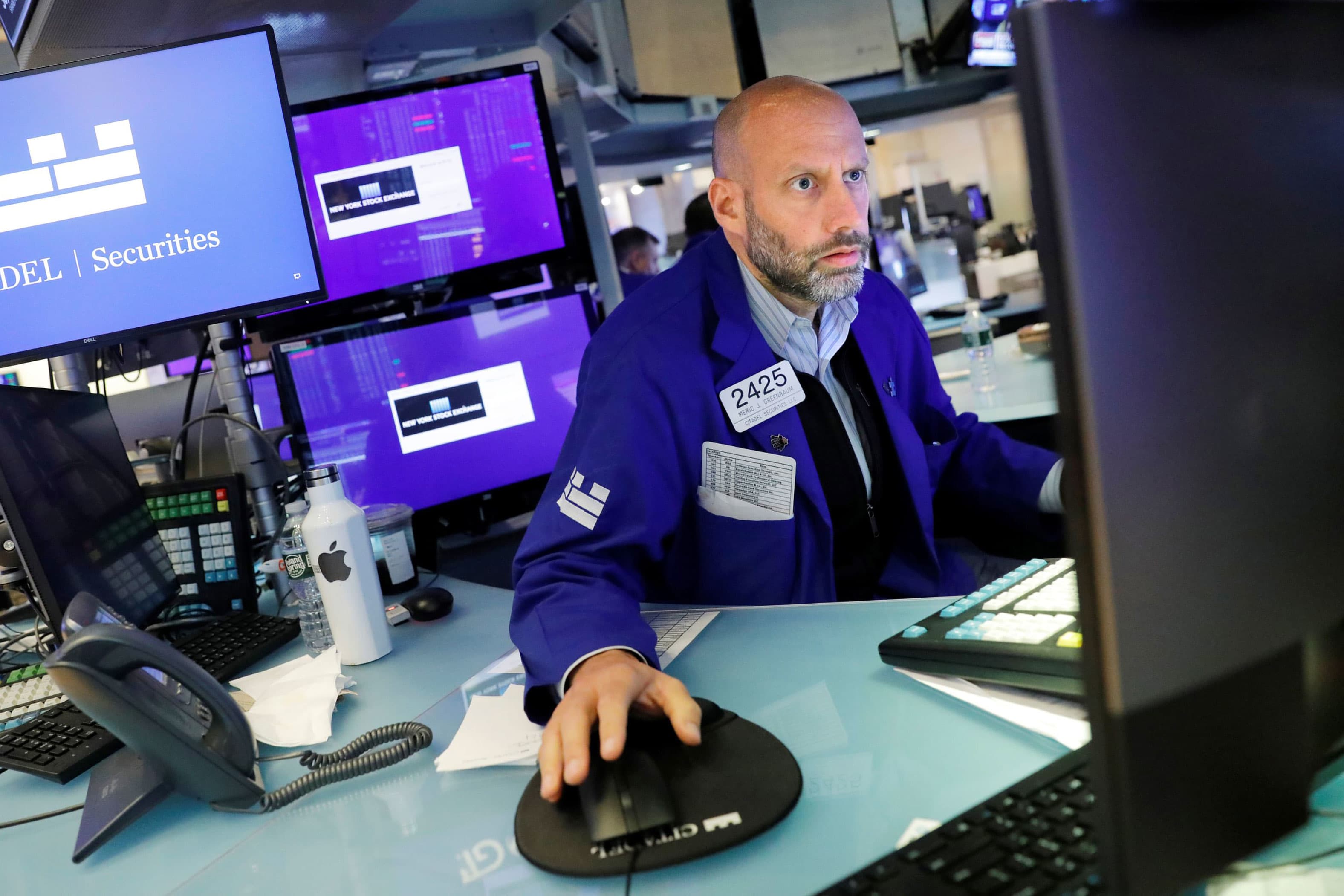European stocks mixed as euro hovers close to dollar parity; EDF shares up 5%
European stocks traded mixed on Tuesday, paring earlier losses as investors closely monitor the euro and economic data.

LONDON — European stocks traded mixed on Tuesday, paring earlier losses as investors closely monitor the euro and economic data.
The pan-European Stoxx 600 index was little changed for the session during mid-afternoon deals, with sectors and major bourses pointing in opposite directions.
Oil and gas stocks led the losses, down more than 1.3%, while financial services stocks rose 1.4%.
The euro reversed losses that saw the single currency teetering on the brink of parity with the dollar on Tuesday morning. The euro was last seen trading 0.1% higher at $1.005 on Tuesday afternoon.
It had slipped 0.4% to trade at $1.0001 earlier in the session as the euro zone's energy supply crisis and economic woes continue to depress the common currency.
Looking at individual stocks, France's EDF was among the top performers on the index. Shares of the Paris-listed stock rose over 5.4% after two sources told Reuters that the French government was poised to pay more than 8 billion euros ($8 billion) to bring the power giant back under full state control.
The French government announced last week that it would nationalize the company. It already owns 84% of the firm.
The worst performer on the index was Swedish cloud communications company Sinch, down almost 14% as it extended losses seen on Monday. The company said its second-quarter profit will be hit after it reassessed the historical cost of goods sold, Reuters reported.
Oil and gas stocks were volatile Tuesday morning, veering between positive and negative territory as investors weighed the risks regarding gas supplies to Europe after Russia suspended deliveries of gas to Germany via the Nord Stream 1 pipeline while it undergoes its annual summer maintenance.
The planned 10-day maintenance of the pipeline has stoked fears that Russia could further disrupt gas supplies to Germany.
On the data front, German investor sentiment fell sharply in July. The ZEW economic research institute said on Tuesday that its economic sentiment index fell to -53.8 points from -28 last month. The reading was weighed down by lingering concerns about Germany's energy supply, the European Central Bank's monetary policy and pandemic-related lockdowns in China.
Negative sentiment in European markets comes as investors prepare for more key inflation data out of the U.S. this week.
The June consumer price index is expected to show headline inflation, including food and energy, rising above May's 8.6% level.
Stock picks and investing trends from CNBC Pro:
Market participants have been reflecting on a stronger-than-expected job report out of the U.S. last Friday which showed that the economic downturn worrying investors has not yet arrived.
The jobs report, while good for the economy, could embolden the Federal Reserve to continue its aggressive rate hikes in the coming months to fight persistently high inflation. It will be tested with a slew of U.S. earnings from major banks and the latest consumer inflation reading coming up this week.
There are no major earnings releases in Europe on Tuesday.

 MikeTyes
MikeTyes 































